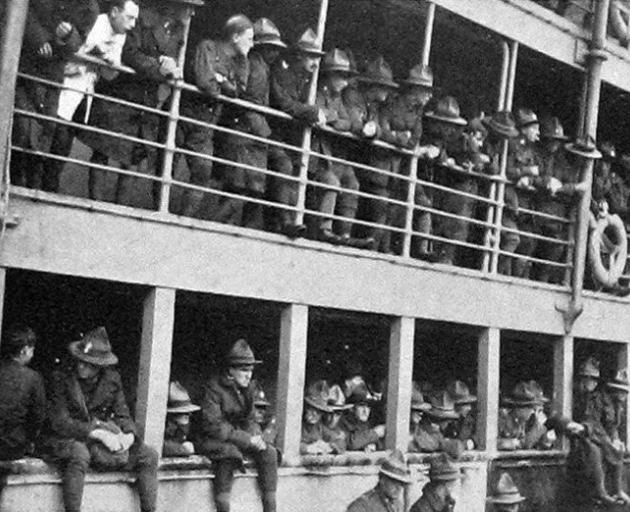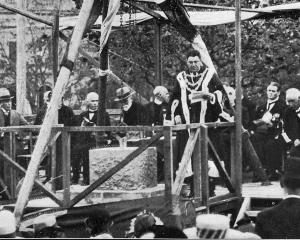
They are mostly comfortably billeted in the towns and villages, and even privates have the luxury of a bed after their strenuous campaigning and constant movement. The soldiers find the Walloon people extremely hospitable, which is in marked contrast with what they experienced in various other places in France and Belgium, where there was a tendency to exploit the soldiers.
The Belgian people, just released from the Hun invasion, greeted the Australians with the greatest cordiality, and it is a frequent thing to see an Australian taking a Belgian family - father, mother and children - to the local military kinema shows.
The New Zealand Division remains in the neighbourhood of Cologne. The Maori Battalion has been assembling at Dunkirk with a view to reparation in a body, and it is likely that the New Zealanders will shortly move near to the coast in the vicinity of Havre, with a view to facilitating demobilisation.
Tidying up at Gallipoli
Mr Peacock (special Australian correspondent) telegraphs: I spent several days at Anzac, and saw many remains, especially Hill Sixty, at which the officers and men who fell were never buried.
These remains should be immediately gathered up and interred. New Zealanders have already done much in the marking of isolated graves. The following scheme has been drawn up, and is generally endorsed here: The whole battleground of 3000 or 4000 acres, which is valueless for production, should be secured, enclosed, and consecrated as an everlasting memorial; the trenches, hospital sites, and distinctive features should be preserved and reconstructed, the cemeteries cleaned up, uniform stones placed at all the graves; outlying graves should remain undisturbed; exposed remains should be gathered within the sectors, where regimental monuments should be erected showing the names of the dead; an Australian and New Zealand trust should be created, charged with the maintenance of the battlefield and appointing permanent caretakers, the dominions sharing the cost.
Large draft arrives
A fairly large draft of returned soldiers, 129 in number, reached Dunedin by the express last evening, having arrived at Auckland on Monday by the Ruahine.
The men were met by a large number of their relatives and friends, who gave them a very hearty reception. Fifty-four of the soldiers have their homes in Dunedin, and these men were taken to their destinations in motor cars provided by the Otago Motor Club.
The remainder, who belong to Southland and the country districts, were billeted for the night at several of the city hotels, and will continue their journey by the first trains this morning.
Shearing delayed
The wet weather continues to delay shearing operations. A Clutha Leader representative who went through the Clifton and Otanomomo Estates noticed that very few sheep had been shorn.
We have heard of some severe losses among shorn sheep on the high country, and the Christmas cold snap took a fairly heavy toll.
- ODT, 23.01.1919.
COPIES OF PICTURE AVAILABLE FROM ODT FRONT OFFICE, LOWER STUART ST, OR WWW.OTAGOIMAGES.CO.NZ












